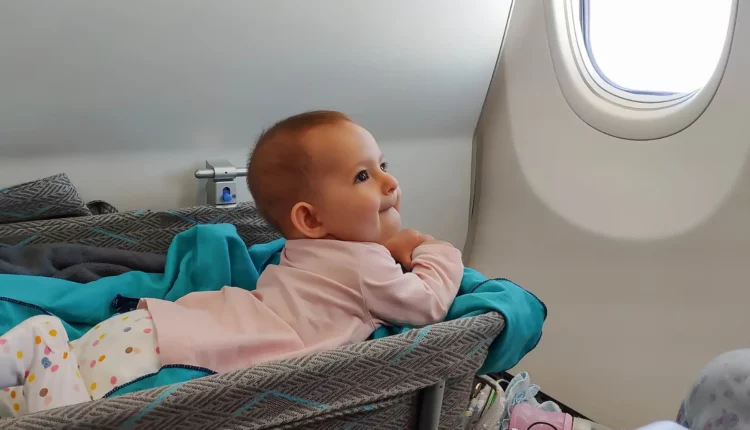Traveling with a newborn can be stressful, to say the least. As a new parent who loves to travel, you may be wondering when can you travel with a newborn? Do you want to know whether it is even safe for you to take your infant on a plane or long car ride? How you should go about traveling with an infant, and what equipment you’ll need to take with you? That’s why we’ve compiled this guide on everything you need to know about traveling with a newborn.
In this article, we will discuss at what age can you travel with a newborn. This will include when you can travel with a baby by car or by plane, and whether a baby needs a passport. Plus, a checklist of the Baby Travel Essentials you need when traveling with a baby.
You may also be interested in reading our articles about Stress-Free Travel with a Baby or how about Road Trip With A Baby: Tips To Help Parents Survive. And if you’re looking for the best baby travel gear, check out these articles about the Most Popular Infant Car Seat For Travel or the Best Lightweight Travel System Strollers for a Baby.
At What Age Can You Travel With A Newborn?
While the specifics vary depending on whether you’re traveling by car, plane, or train, doctors generally agree that it is best to wait till your baby is at least 2 to 3 months old before taking them on a trip. This allows time for their immune system to be better developed. However, if it is absolutely essential for you to travel with your infant before that, exceptions may be made depending on the travel time and your’s baby general health. Always consult your physician before traveling with your newborn.
When Can You Travel With A Newborn By Car?
However, if you are driving instead of flying, it is safe to travel short distances of a couple of hours or less with your newborn baby. But for long car journeys of over 3 hours, it is recommended to wait until your baby is around 2-3 months. When driving with a baby, it is important to take at least a 15-minute break every 2 hours to get your infant out of their car seat and allow them to stretch. This is a good time to feed your baby and change their diaper.
If you are traveling a long distance, you may consider flying with your newborn. Flying with a baby is often more comfortable than car travel because you can both get up and move around, and your baby is not strapped in a car seat for hours on end. You can feed and change your baby while the flight continues, so you don’t have to stop traveling to take a break. Keep this in mind when deciding how you can travel with a newborn baby.
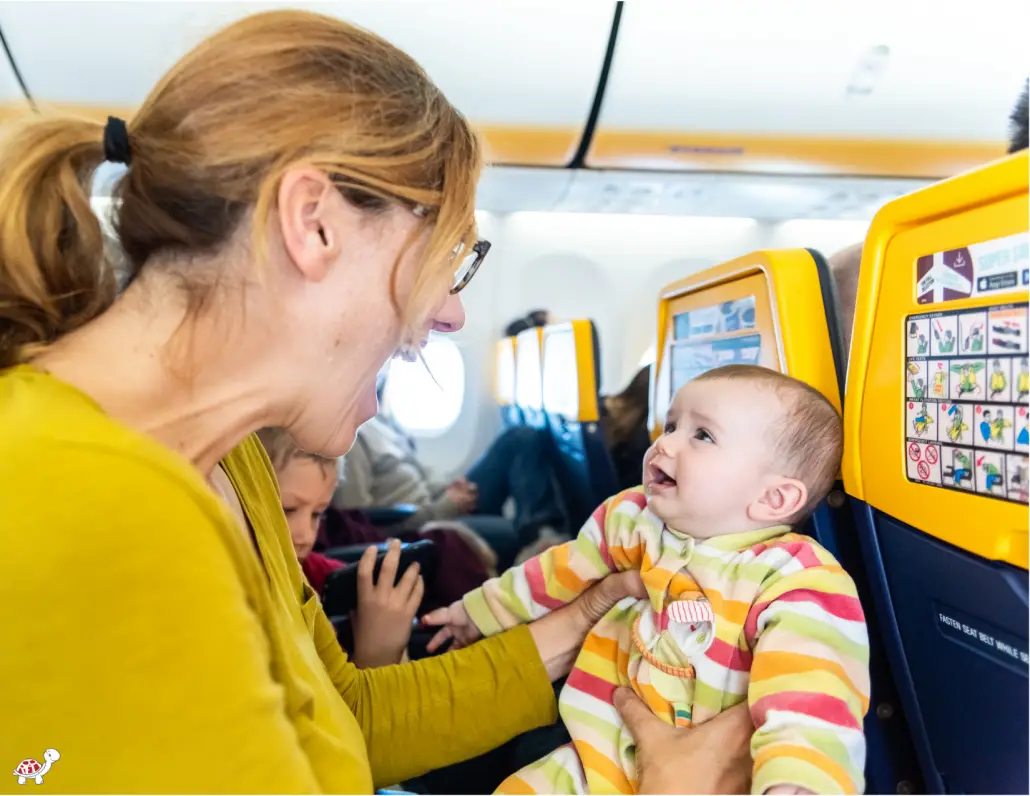
Can You Take A Newborn On A Plane?
The first question to ask is can you take a newborn on a plane? It is important to check your airline’s policy on newborn travel. Some airlines have a minimum age requirement for flying ranging from 2 days to 2 weeks. From a medical viewpoint, doctors recommend that babies should wait to fly until their immune system is better developed. For a full-term healthy baby, this would be at least 4-6 weeks. Again, it is always important to check with your child’s pediatrician before flying with a baby.
Planes or other areas with large crowds in close proximity can be breeding grounds for bacteria and viruses. Even a common cold can put a baby’s health at risk due to their lack of a strong immune system. Parents must take caution whilst traveling and make sure to keep their baby protected from individuals with any (even mild) contagious diseases. In case of urgency, if your baby is healthy and under a month, then flying can be considered, although it is important to exercise caution.
One major problem babies and even toddlers face on airlines is air pressure. Airplanes have low air pressure, which causes two major discomforts: ear pain and breathing problems. Ear Pain can be solved by making the baby suck or drink something while the air pressure increases or decreases. If your baby is premature and has lung or respiratory diseases, then this can be more of a problem. However, if your baby is completely healthy, then it should be manageable. Either way, it’s important to talk to your child’s doctor about your travel plans and receive their approval about when you can travel with a newborn.
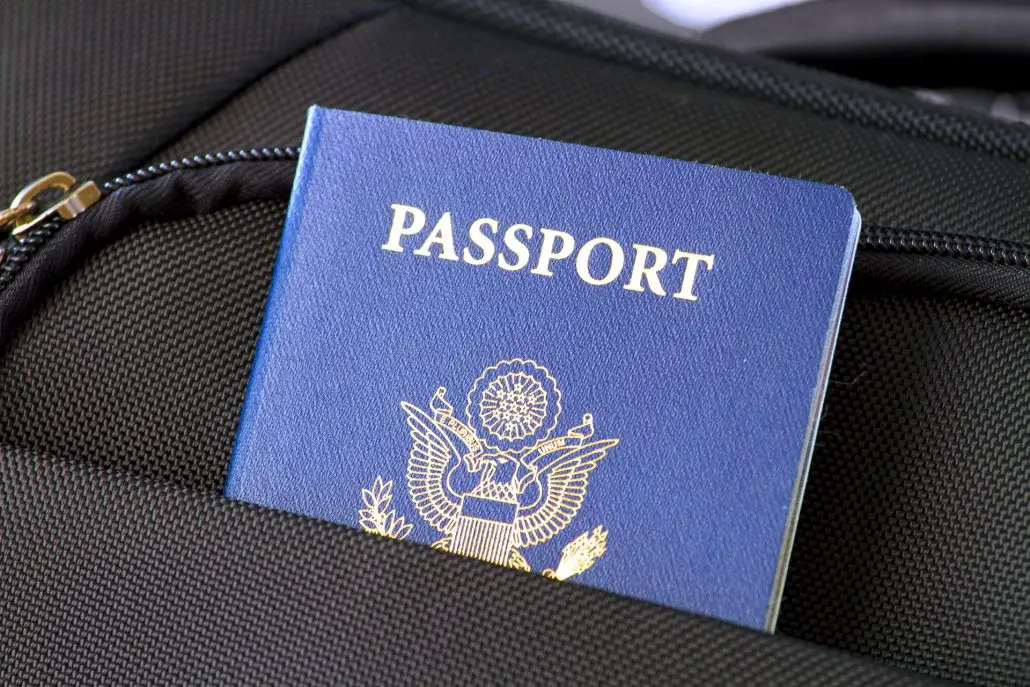
Does My Baby Need A Passport?
Regarding documentation, people often wonder if babies need passports. The answer to this one is simple; any living being needs the appropriate documentation. Newborns may be harmless and completely dependent on their parents. But that does not disregard the fact that they are individuals who require documentation. Without the required documentation, nobody (regardless of their age) is allowed to travel internationally.
When it comes to newborns, many airlines in the United States have different policies. On Delta, your baby must be older than a week to fly. United Airlines also has a similar policy. Even for domestic flights, airlines may require documentation to show proof of age before your baby can travel. If official government documentation has not arrived, you may be able to use hospital forms or vaccination records to show proof of age for domestic travel. Check with your airline what they will accept.
If you are traveling internationally, then your baby will need to have a passport. It is important to read our complete step-by-step guide to getting your baby or child a U.S. passport.
Baby Travel Essentials
Traveling is hectic as it is, but being responsible for a baby and its luggage adds more pressure on the parents. Often, many parents pack far too much for their baby and find their baby bag weighing more than their actual suitcase. To avoid over-packing (and under-packing), we’ll list the things you need to travel with a baby. Bringing these baby travel accessories will help you when deciding if you can travel with a newborn.
Here is a checklist of Baby Travel Essentials:
1. Diaper Bag
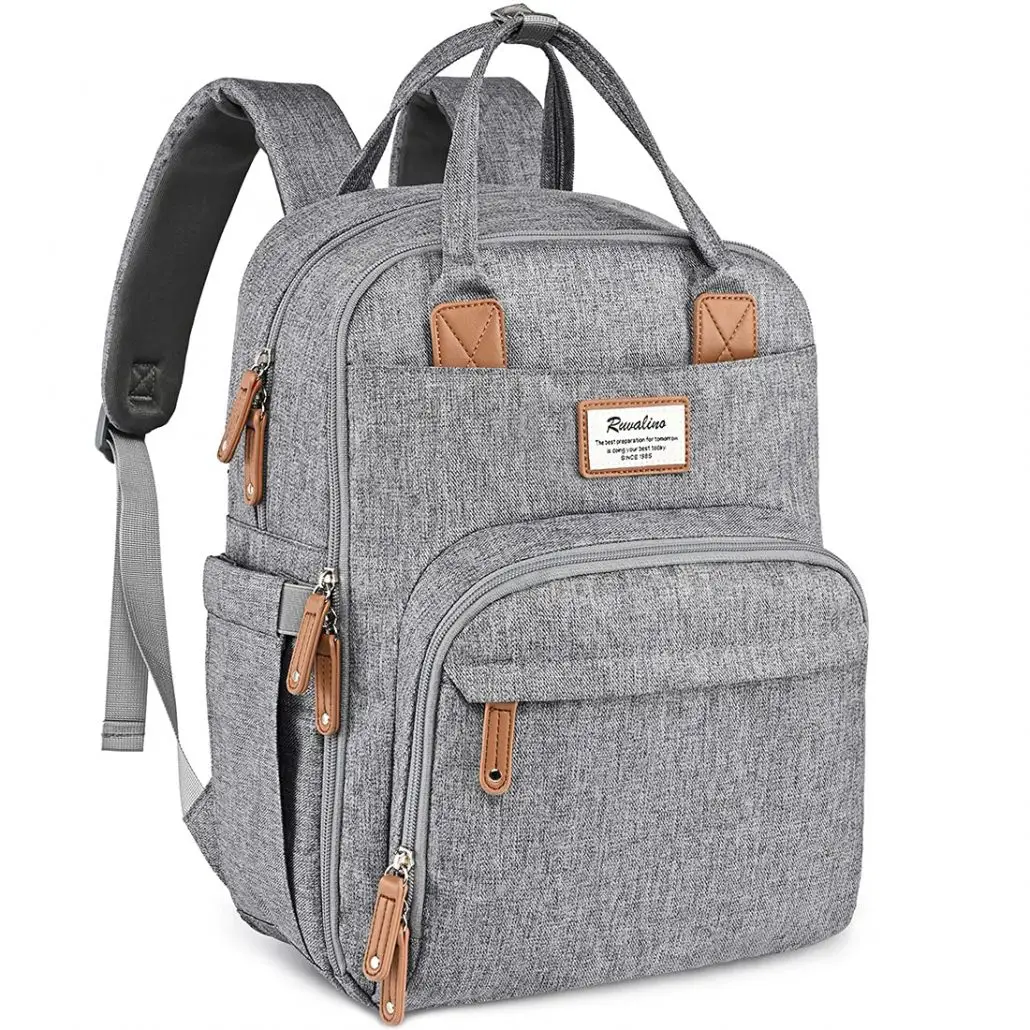
The first thing you’ll need to purchase is a diaper bag for all your baby’s essentials. As a general rule bring one diaper per hour of travel, with one or two spares just in case. Remember you can always purchase more when you reach your destination. A diaper bag we’d recommend is the Ruvalino Multifunction Travel Backpack. It’s big enough to hold everything you need, with multiple convenient compartments. Finding the right diaper bag for you will make all the difference when traveling with your baby. Check out this article about the Best Diaper Bags for Travel.
2. Sanitary Items
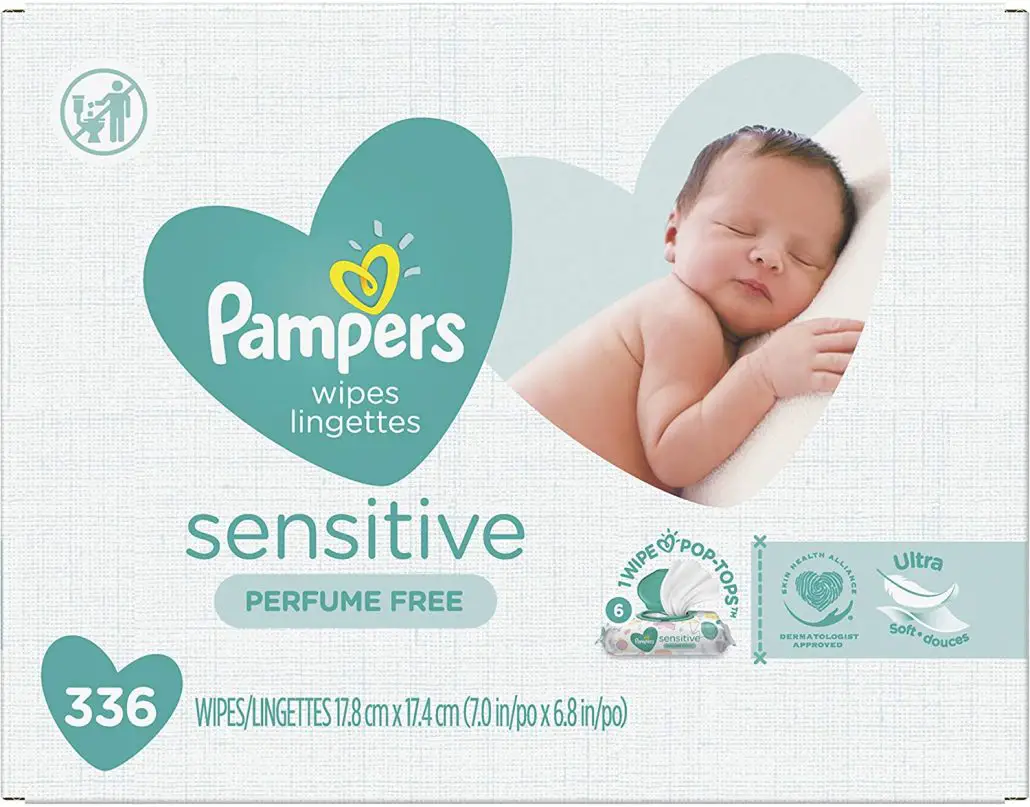
You’ll also need a few key sanitary items. These Pampers Baby Wipes are unscented and hypoallergenic. You’ll need these not just to clean your baby, but to wipe down the diaper changing counter, and sanitize the area you’re putting your infant on. Also, don’t forget to keep tissues and a portable changing pad.
Make sure you pack diaper cream if you’re flying. A 3 oz tube is more than enough, just in case you’re stuck in a jam and are not able to change that diaper immediately. And don’t underestimate the importance of a plastic bag at the right time!
3. Burp Cloths & Bibs
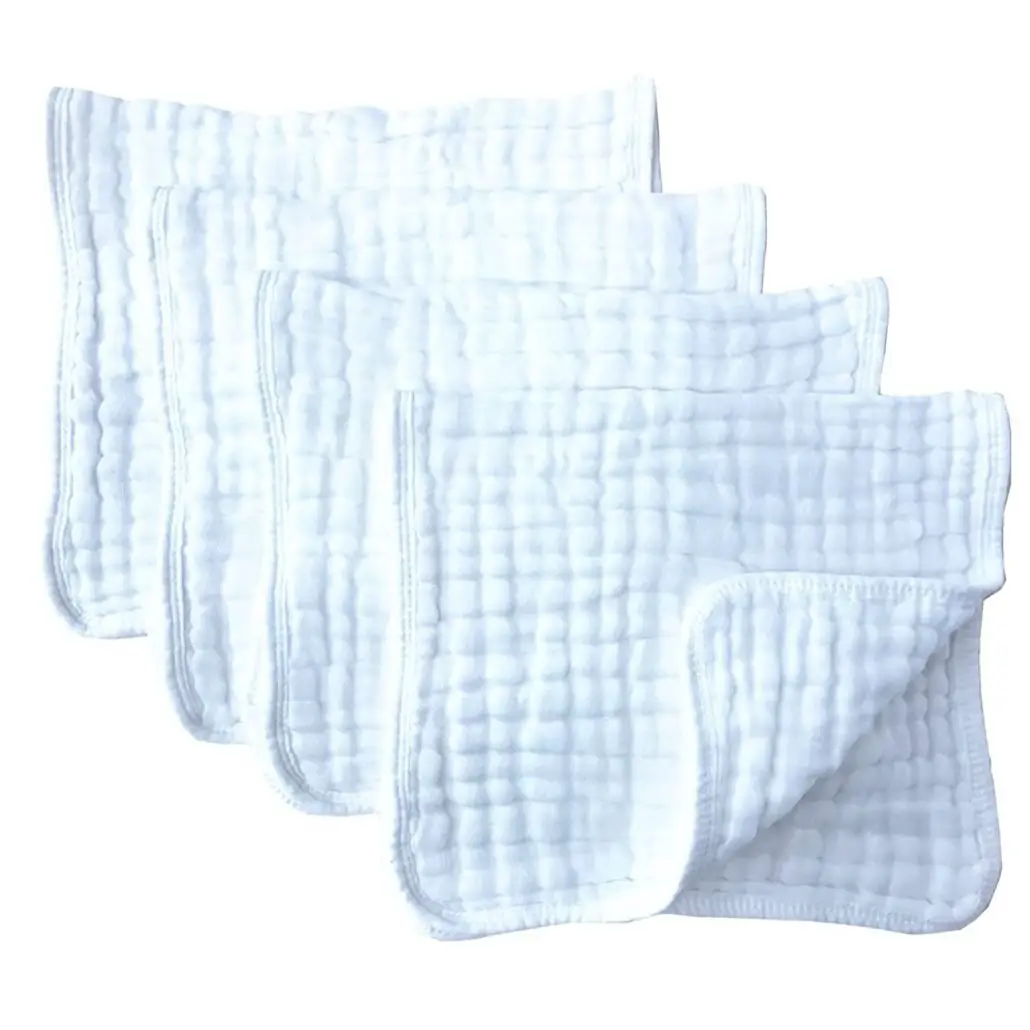
If there’s one thing you can count on it’s that your infant’s going to make a mess of their clothes by the time you get to your destination. However, regardless of whether you’re traveling by car or plane, changing their entire outfit may be more hassle than it’s worth. Instead, keep a number of burp cloths, blankets, and bibs on hand. These are easier to change and will keep your baby clean during your travels.
These Muslin Burp Cloths are super soft and extremely absorbent. While the Luvable Friends Cotton Blanket Set comes in a range of cute designs that will fit neatly into your diaper bag. The KeaBabies 8 Pack Organic Bandana Bib Set adds color and function to your infant’s outfit. Don’t forget important items like a pacifier with a clip and teething rings to keep your infant calm. Of course, if you’re going to be traveling for a few hours then it may be a good idea to also bring changes of clothes for yourself and your baby.
4. Infant Car Seat, Baby Carrier and Lightweight Stroller
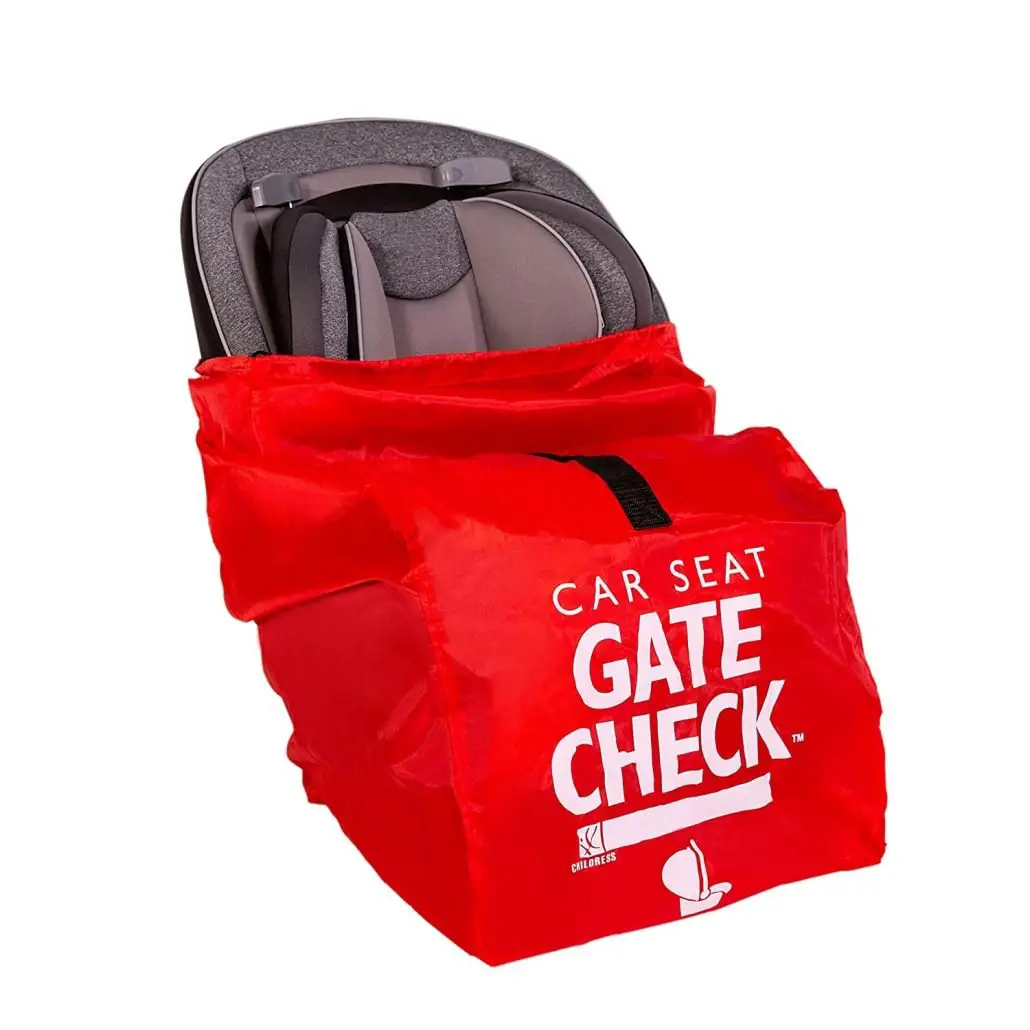
For your child’s safety, it is important to invest in some necessary baby items that can be used for travel. You will need an infant car seat, a baby carrier, and a lightweight travel stroller.
When your baby is less than a year old, then a travel system is ideal for travel because it includes the infant car seat, which can clip into the stroller. To learn more, read our article about the Best Lightweight Travel System Strollers for a Baby. If you are flying with your car seat, then make sure to use the J.L. Childress Gate Check Bag for Car Seats to protect your car seat during transit.
A baby carrier will make it easier to discover new places with your infant. It is handy to wear your baby in a carrier so that your hands are free to maneuver luggage and anything else you need to do while traveling. If you’re confused about which one to buy, check out Ergobaby Carrier 360 or BABYBJORN Baby Carrier Free. To learn more, read this article about the Best Child Carrier for Travel or Hiking.
If you’re flying with a baby, you’ll want to invest in a lightweight and convenient travel stroller like the Summer Infant 3Dlite Stroller. And don’t forget to get a gate check bag. The J.L. Childress Gate Check Bag for Standard & Double Strollers provides the perfect protection and is a great cover for your baby’s stroller.
For more recommendations and to learn more about what’s right for you, read these articles about How To Fly with Infant Car Seat, or the Most Popular Infant Car Seat For Travel, or choose a Lightweight Travel Stroller. And here is What to Consider Before you Travel with a Car Seat.
5. Feeding Equipment
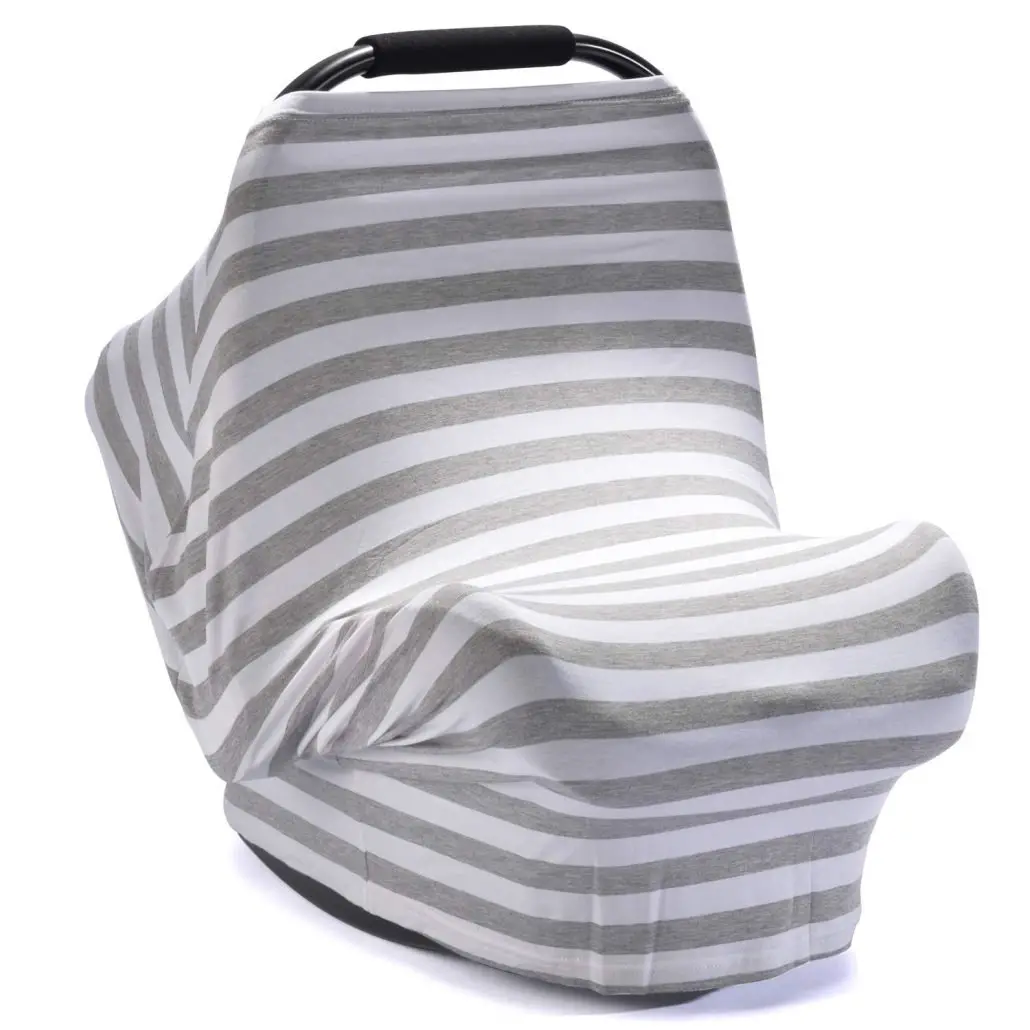
It is necessary to pack sufficient food and feeding equipment for a baby, such as baby formula or breastfeeding equipment and a nursing cover. The PPOGOO Nursing Cover for Breastfeeding is perfect for nursing in close quarters. This multi-functional cover doubles as a baby car seat cover and a shopping cart cover. If you’re looking for a specific nursing cover the UHINOOS Nursing Cover has an adjustable strap and a plastic semi-ring on the front so you can see your baby.
Also, keep baby formula and bottles on hand in your carry-on bag. You will need them after you make it through security so having them in your baby bag will make your life much easier while traveling.
3-1-1 Liquids Rule at Airport
Did you know that breast milk, baby formula, juice, baby food, and even liquid medications in quantities larger than 3.4 ounces are exempt from the 3-1-1 liquids rule at U.S. airport security? That’s great news for parents traveling with a baby. When it comes to sippy cups and baby bottles you are in the clear! Make sure to remove these items from your carry-on luggage to be screened separately from the rest of your belongings.
If you are traveling with a baby you are allowed to bring more than 3.4 oz of:
- Breast milk
- Formula (and premixed baby formula in liquid of frozen state)
- Milk products
- Juice
- Teethers (gel or liquid filled)
- Bottle Water
- Canned, Jar and Processed Baby Food
- Essential non prescription liquid medication
It’s likely you’ll need an additional screening if you bring these items through airport security, but these screenings are completely harmless.
Babies over 6 months who have started on solid food will need snacks during long trips. These Travel Snacks for Kids provide ideas of healthy child-friendly snack options. It is handy to put some cheerios in a Snack Catcher Cup to keep them from dropping. This makes snacks easier to carry while you travel.
6. Travel Toys for Baby
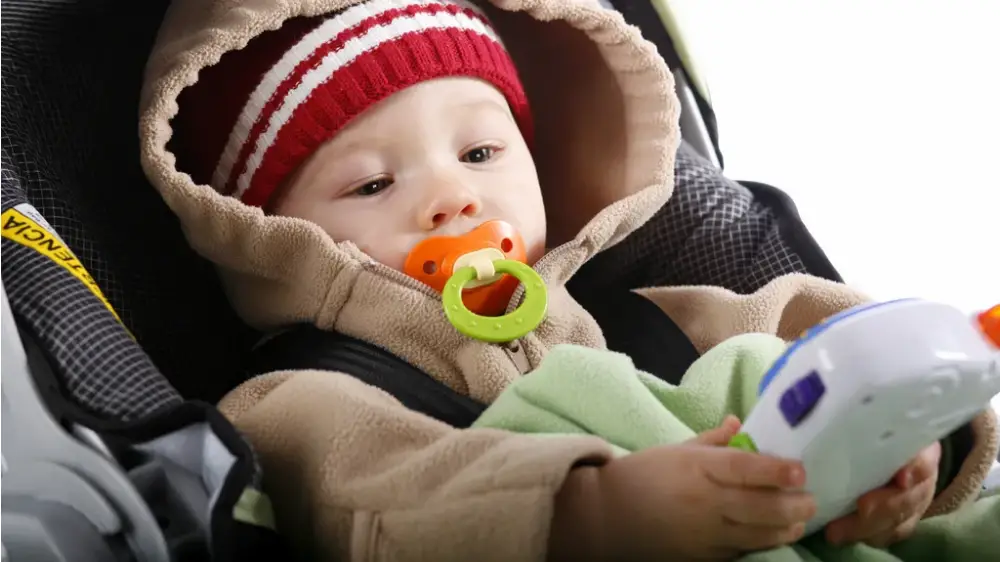
There’s nothing worse than trying to take care of a cranky baby on a plane. Remember to pack toys for your baby at all costs to avoid a bored and crying baby. Check out these small baby travel toys that will fit in your baby bag without taking up a lot of space. Another great idea is to travel with a comfort item your baby loves like a blanket or a stuffed toy.
7. Emergency Kit
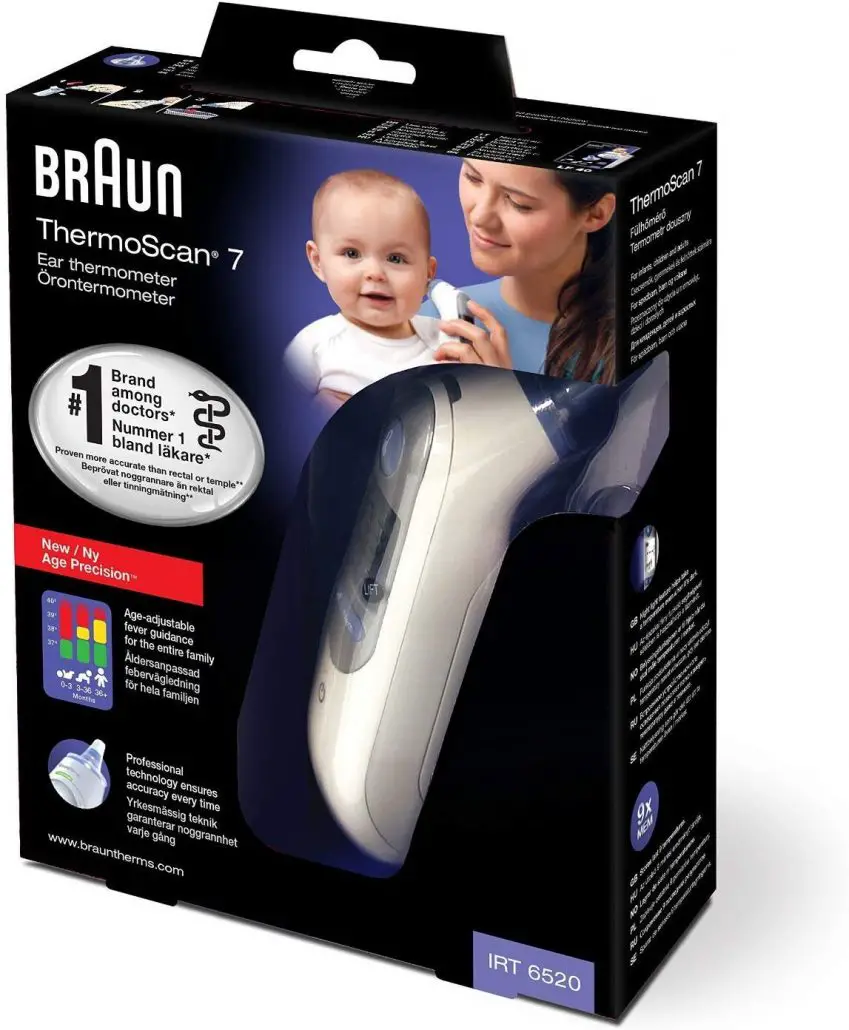
Newborn babies are vulnerable to sickness so packing an emergency kit is essential. Make sure you pack a thermometer to take their temperature, Tylenol for fever, Ibuprofen for pain, bandaids for cuts, and any other prescription medication they have. Keep all these supplies in your diaper bag (which is easy to access) in case your baby starts feeling unwell during a flight or road trip.
And for parents who are flying with their infants don’t forget to carry ID for you and your baby. If you don’t know how to go about it, you can check out our post about how to apply for your child’s passport.


